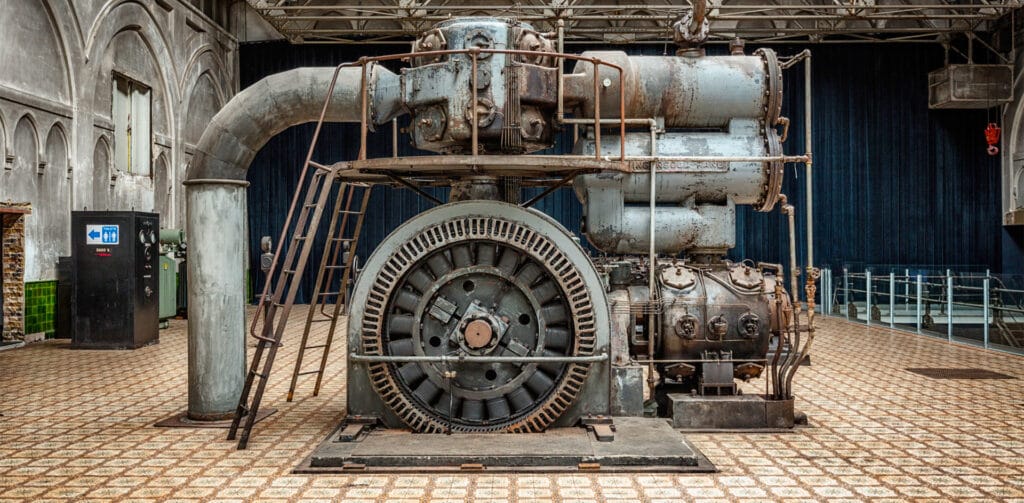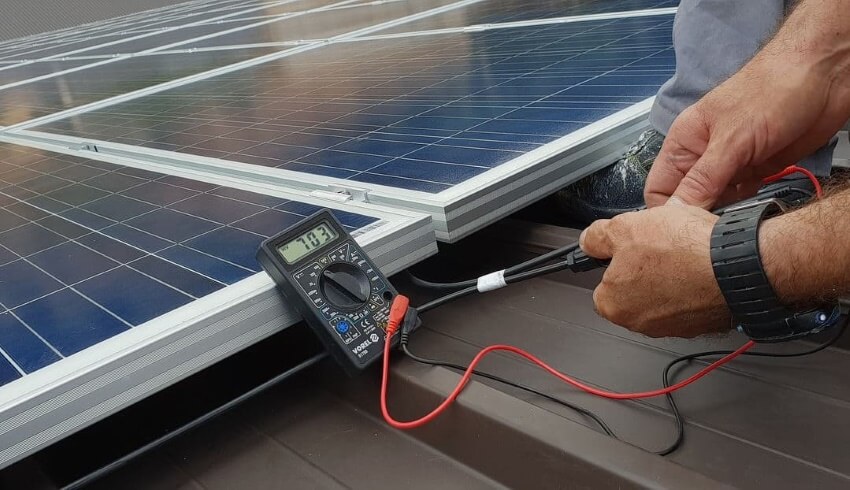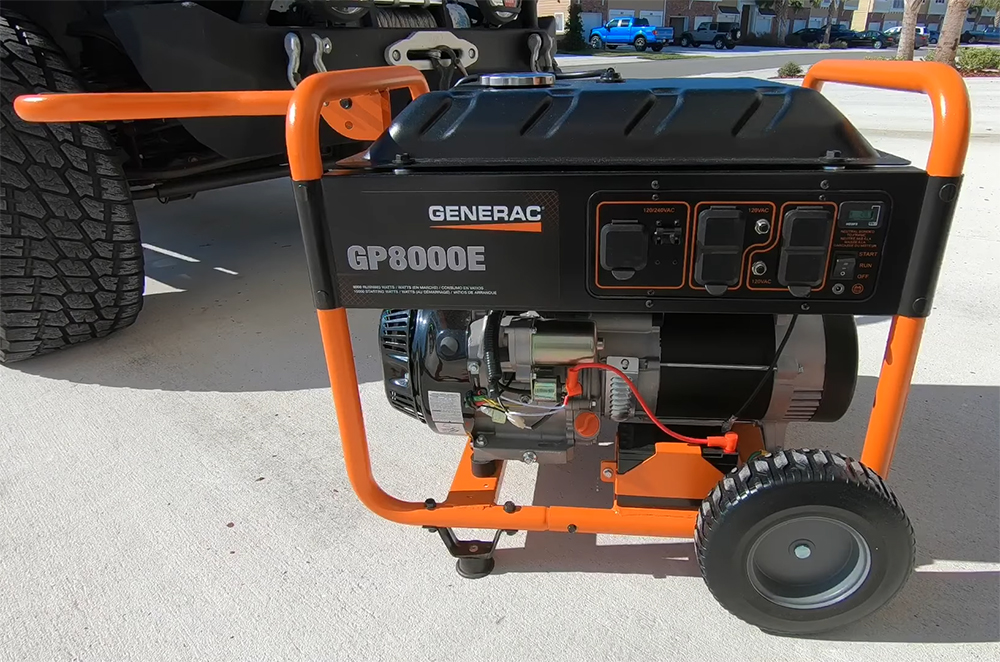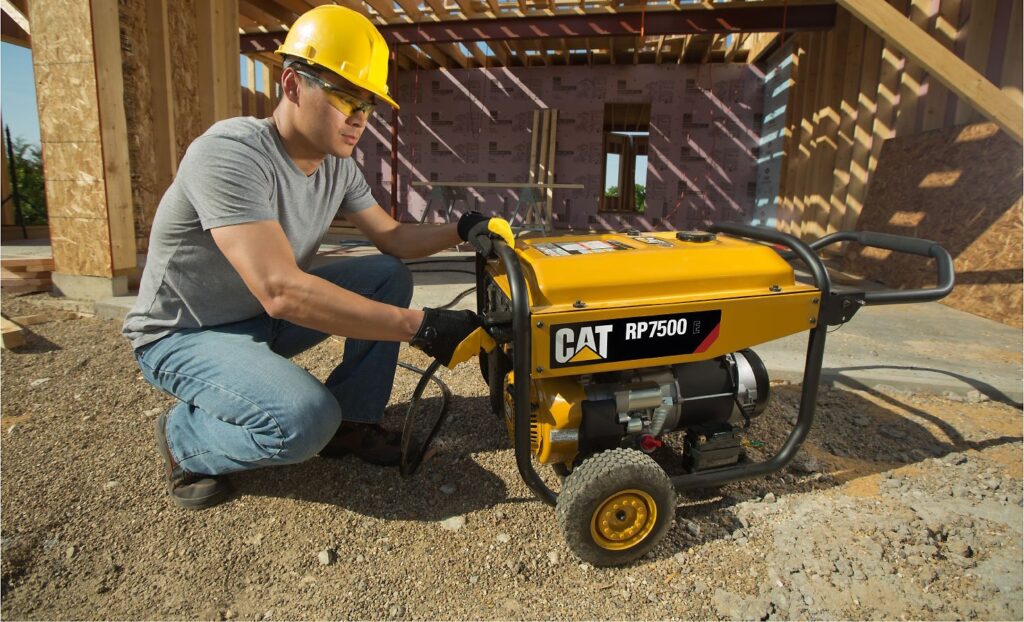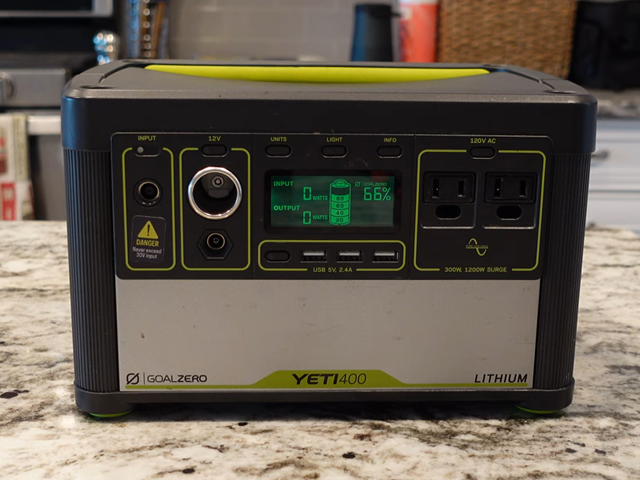
Propane heaters have been used for some time to provide extra heat when needed. They are a fan favorite for camping, patios, decks, and more. If you’re wondering can propane heaters be used indoors, you’ve come to the right place.
When you use propane heaters indoors, there are several elements to pay attention to. You should consider where and how you have the heater placed, surrounding items, and the use of the heater. It shouldn’t be left unattended if you want to prevent hazards.
In short, you can use propane heaters indoors, but there are some safety specifications that you should be aware of before you do. We will share these details and more below.
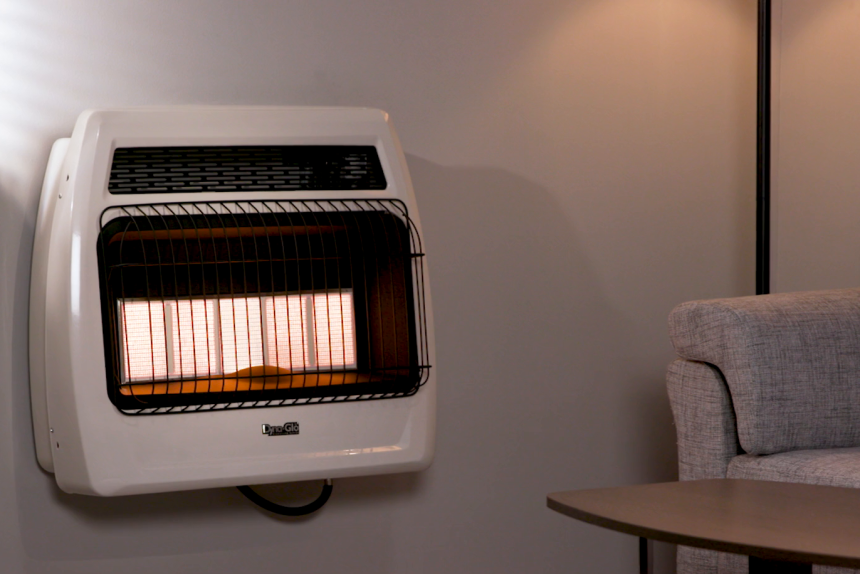
Propane heaters are safe to use if you are willing to follow certain safety protocols to prevent risks. You should be aware that there are two different types of propane heaters. There are heaters specifically designed for outdoors, and others made for indoors.
When you’re using a heater indoors, we recommend sticking to an indoor propane heater for the best safety. When you compare propane heaters like Mr. Heater to the outdoor models, they differ in how they put out heat and their overall design.
Most indoor heater models are smaller and made to be portable. They have lower output but can heat a full room just fine. If you’re concerned about power or fuel, you can also connect most heaters to an indoor generator to have power on demand. Using an electric heater paired with an indoor generator could potentially be a safer alternative in some cases.
Indoor propane heaters and outdoor propane heaters operate very differently. The outdoor heater is not safe to use inside. This is because they don’t typically have the same ventilation and smoke deflection to be safe indoors.
If you want or need to use propane heaters indoors, you need to be sure to use an indoor-rated propane heater like Hexago that can properly filtrate and circulate the air without the risk of things like carbon monoxide.
Using an outdoor heater inside is not safe and not recommended.
When you compare indoor and outdoor propane heaters, you will first notice that most outdoor models are large and slightly open. This is because they don’t need the same airflow and ventilation to prevent carbon monoxide as an indoor heater does.
An outdoor propane heater needs to be able to effectively warm space, but everything around it is open, so this combats any return air when the propane is burning.
An indoor propane heater is designed to properly circulate and dispose of unclean air from the propane burning. They are created and prepared for indoor use to prevent carbon monoxide accumulation in your closed space. Most indoor models even have sensors to monitor the immediate oxygen and air quality around them.
So you see, indoor propane heaters are designed to prevent carbon monoxide, while outdoor heaters don’t need these added features since they are not used in enclosed spaces. It’s much like operating an outdoor generator; you have to be careful about the carbon monoxide output to protect your home.
Checking to be sure you are using an indoor-rated heater is the most important element. However, even when you use the proper type of heater for the space, there are certain elements you need to be familiar with.
Take a look at these helpful tips to ensure you are safely using your indoor propane heater.
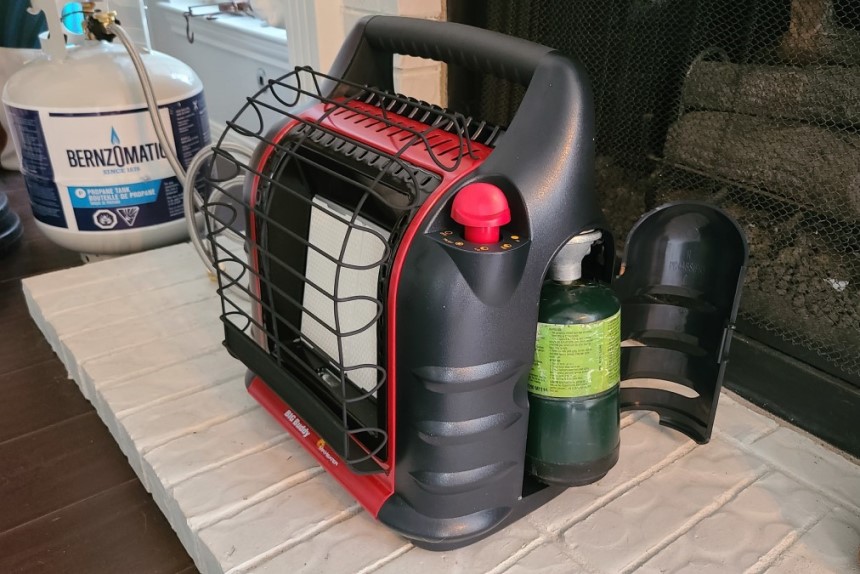
Some propane heaters are designed to be installed in an area like your wall. Others are designed to be mobile. Regardless of which type you are using; you should be familiar with the surroundings before turning the heater on.
These heaters can pose a fire risk if they are too close to combustible materials. This term refers to anything that might be able to catch fire. It could be personal items, clothing, curtains, or even furniture.
Check the specifications on your heater, but the key is to make sure it is not too close to any of these types of materials. You may also need to consider the material of your wall if this is being installed into a wall.
One of the most inherent risks of using a propane heater is the fact that burning propane emits carbon monoxide. This is yet another reason you have to be sure you are using an indoor-rated propane heater for enclosed spaces.
These indoor heaters are designed to have safety shutoff technology so that if the sensed air around the heater doesn’t have specific oxygen ratings, the heater turns off. It’s a protection mechanism for yourself.
Generators that operate on gas or propane have the same types of risks. Protect your household from carbon monoxide poisoning.
Even with the inherent safety designs meant to prevent carbon monoxide, these don’t always work as well as we would like them to. The sensor could fail or wear out over time. If you plan to use a propane heater in an enclosed space (indoors), you should take an extra step of precaution and install a carbon monoxide detector.
These simple tools are constantly monitoring the air around them. If the carbon monoxide levels reach a certain level, the detector alerts you that there is a risk. This gives you a chance to get the heater shut off and get your space aired out before anyone suffers from poisoning factors.
Don’t rely on your heater to repeatedly sound the alarm. Take the extra step of precaution by adding a detector and thereby adding another layer of protection for your household.
Carbon monoxide is the greatest risk that homes face when an indoor propane heater is operating. Even with the best detectors and reliable heaters, you have to be very cautious. In small enclosed spaces, it can be challenging to prevent hazardous fumes from building up in the area.
Another great way to add a bit more air filtration would be to open a window near the heater. You don’t have to open the window and blast cold air all over the place. You simply need to crack the window and allow some air to flow in and out. Depending on the space, you might even crack open more than one window.
We understand that you’re trying to heat up the space. You don’t want to let in a bunch of extra cold air and make your heater ineffective. The goal here is just to add a touch of fresh air into the mixture in order to prevent carbon monoxide from building up.
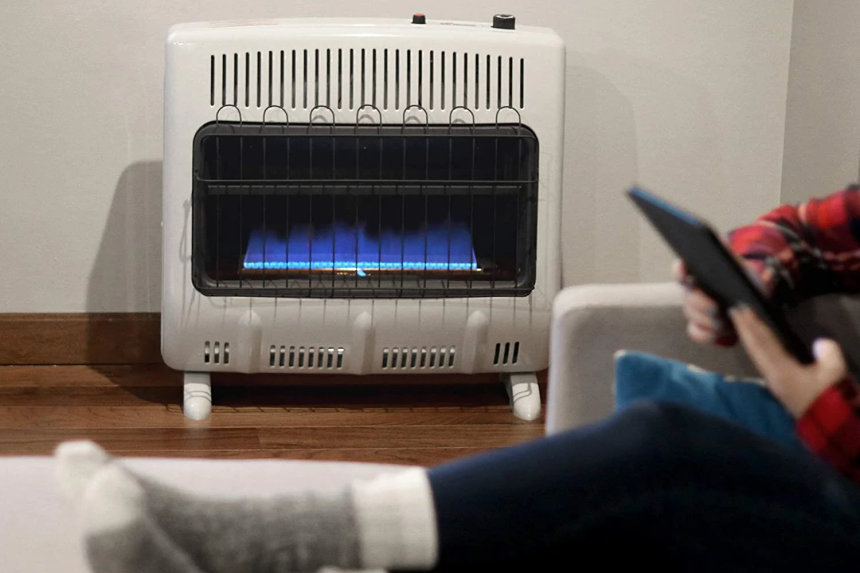
When you use a propane heater indoors, it’s not meant to be a constant long-term solution. You should just be using this type of heater to supplement or warm up for short bits at a time. Not only is carbon monoxide a safety risk, but so is the ability for the heater to overheat or cause a fire as well.
This risk is typically easier to combat because you can see a fire or smoke should one start. However, you cannot see those things if you are not right there with the heater. You should never leave this type of heater operating when it is unattended.
When it is turned on and running, it’s imperative that someone is nearby to monitor the heater and know if something happens. For that reason, using this type of heater to heat a space is unsafe when no one is home. The results could be disastrous.
When you walk away, turn the heater off. You can always turn it back on when you return to the space. It’s better to be safe than sorry, particularly when it comes to a possible fire risk.
Even when you’ve done all the checks for things around or too close to the heater, it’s better to just turn it off when you need to walk away. Even when you only plan to be gone a few moments, it’s simply not worth the danger it could pose.
When you go to sleep, you want to be sure to turn off your heater. While you might think this isn’t as risky as walking away and leaving it unattended, it really is! When you go to sleep, you impose the same risks as if you were to walk away and leave the heater unattended simply.
After all, if you are sleeping you are certainly not able to keep an eye on the heater. This is yet again another fire risk and it’s simply not worth the risk.
Don’t kid yourself into thinking that you will be able to wake up if something goes wrong. You just never know if you will actually wake up if a fire were to start. By the time you woke up, it could be a terrible scenario in which you’re trapped, or other household members are trapped.
Remember that this type of heater is meant to be used for shorter periods of time and turned off when it can’t be actively monitored. Leaving it on overnight while you sleep is not safe and certainly not recommended.
Propane is a form of gas and with that knowledge, you have to treat it as gas. We made a comparison earlier to generators because that’s a relatable piece of equipment as far as safe handling. Once your propane heater is operating and producing heat, you need to leave it where it’s at.
Before you move the heater or relocate it, you will want first to shut it off and then give it a few moments to cool down. Once the heater has cooled slightly, you can then move it around where you need to. Even after you move it, give it another few moments to settle before you turn it on.
Here’s the deal. The propane (or gas) that is flowing through the heater requires a specific flow to operate. When you move the heater, you can disrupt that flowing propane, causing a risk. The risks include possible leaks as well as fire hazards.
You move the heater, and you inherently throw off the operation. Your machine might not be sophisticated enough to realize something is off until you have a full-fledged problem and you’re literally fighting the fire.
Does this mean you can never move the heater? No! You just need to be mindful of when and how you move it to avoid such issues. The tips we shared above for powering off, cooling, moving, settling, and then powering back on are extremely effective here.
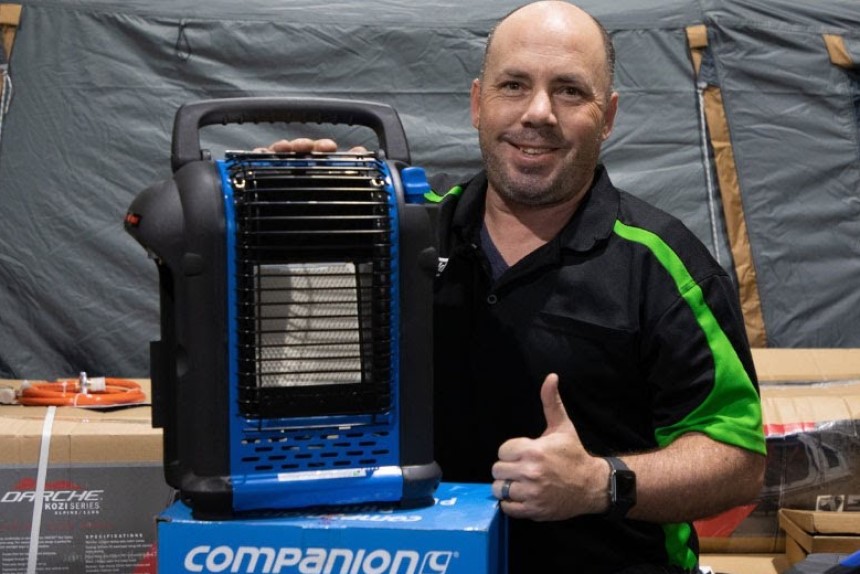
This tip is more along the lines of maintenance and upkeep on your heater. Remember everything we have learned about propane heaters. There are certain elements that make them fire hazards and certain elements that can lead to carbon monoxide poisoning if not properly cared for.
Chances are that your indoor propane heater has several different sensors and shut-off commands to help keep you safe. However, it’s nearly impossible for us to know if those are always working the way that they should.
At a minimum, you want to know that you have protection from your unit overheating, include a thermostat to regulate heat output, and operate with a sensor for low oxygen. These three aspects are supreme for your safety.
Much like other types of appliances and devices, you need to inspect the heater on a regular basis carefully. If any repairs or maintenance are needed, this is the time to take care of them. In some cases, your heater may need to be cleaned well. You should also check all hoses and sensors to be sure they are operating properly.
Inspecting your propane heater can help reduce hazards and risks and make you more aware of potential issues that could occur. This is about upkeep while also being about your safety.
You also want to store it away properly when you aren’t using your propane heater. You certainly don’t want to run the risk of accidentally turning it on or getting things ruined from the propane or the heater itself.
Here are some tips for properly storing the heater.
These things will be important for storage to protect the heater from any issues but also to protect the heater’s surroundings. If the heater has any type of cover, you can use this for storage as well.
Don’t leave your indoor heater out. Put it away securely and ensure that it can’t be mistakenly turned on while in storage.
Propane is typically sourced through a tank of some sort. For a heater, you will likely connect the heater using a hose. This may depend on the heater. For this reason, it’s important to understand not only how to handle the heater but also how to handle the propane.
Here are a few tips for you to consider and put to use.
When considering if propane heaters can be used indoors, there are several things to know and be aware of. As long as you are familiar with the safety protocols and you are using a heater rated for indoors, you should be ok.
Take the precautions we mentioned in the tips above to ensure that you keep your home and family members safe when using an indoor propane heater.
